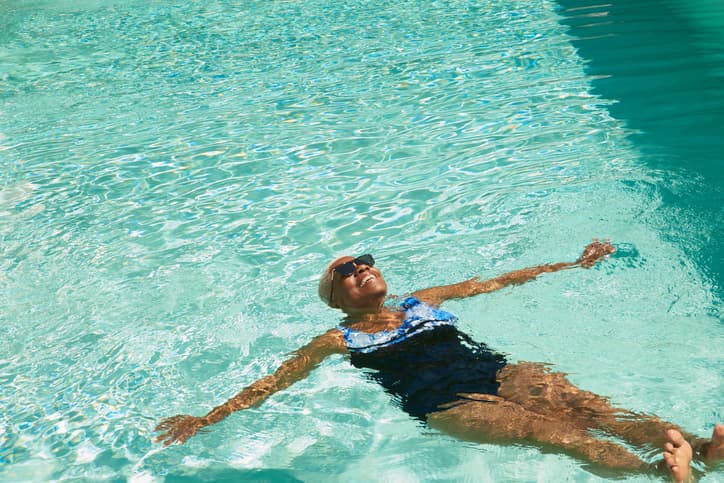How To Find a Registered Dietitian

Written by Chad Birt on Fri Aug 18 2023.

Making healthy meals isn’t always easy. If you care for someone who has food allergies or takes several medications creating a meal plan can be even more challenging.
Understandably, many family caregivers worry that their loved ones aren’t getting good nutrition. And, considering that 17.4% of adults have some type of dietary restriction, it’s a valid concern. Thankfully, you can cut a lot of stress by working with a registered dietitian.
What You’ll Need
Finding a registered dietitian doesn’t require any special equipment. You can ask your loved one’s doctor or healthcare provider for a referral, or you can research qualified professionals in your area.
Laying the groundwork takes the most time, but as long as you don’t rush and ask plenty of questions, you will succeed.
Steps to Help a Loved One Find a Registered Dietitian
Step 1: Visit the Doctor
Before creating a personalized nutrition plan, you need to understand your loved one’s dietary needs and limitations. Make an appointment with their doctor to discuss nutrition. During the visit, ask questions like:
How do I know my loved one is getting the nutrition they need?
Do any of the medications they take affect appetite or how food tastes?
Do any of the medications prevent my loved one from absorbing vitamins and nutrients?
Is it normal for someone this age to have low or no appetite?
Can my loved one cut back on their medications if they improve their diet?
Should my loved one cut back on salt or other additives?
Can they drink alcohol or caffeine?
The answers that the doctor provides play a crucial role in determining the next steps.
Carewell Tip
Consider bringing a tape recorder or smartphone to the appointment, so you don’t have to write everything down.
Step 2: Consider Your Loved One’s Health and Diagnoses
A registered dietitian can help your loved one eat healthier and lose weight. But they can also make personalized recommendations for chronic health problems that have special diet considerations.
Some of the health problems that benefit from improved nutrition include:
Diabetes
Heart disease
High cholesterol
High blood pressure (hypertension)
Kidney stones
Chronic kidney disease
Inflammatory bowel disease
Osteoporosis
Since many of these ailments also require prescription medication, a registered dietitian can alert you to potential side effects and interactions.
Step 3: Research Registered Dietitians in Your Area
If you Google ‘nutritionists near me’ you’ll likely find dozens of results, but that doesn't necessarily mean those people are qualified.
“The term ‘nutritionist’ isn’t regulated. Anyone can call themselves a nutritionist,” said Melanie Betz MS, RD, CSR, CSG, LDN, FAND, Founder & CEO, The Kidney Dietitian. “‘Dietitian’ is a protected title. These professionals are required to have an undergraduate degree in dietetics, complete an internship, and pass a national registration exam. Many dietitians also have master’s degrees in nutrition and specialty certifications.”
Caregiver Tip
Qualified nutrition experts have an “RD” (registered dietitian) or “RDN” (registered dietitian nutritionist) credential.
Step 4: Schedule Interviews with Potential Prospects
After identifying several registered dietitians in your area, schedule interviews. These professionals often work with family members who provide care for older adults, children, and people with disabilities.
“I always ask for caregivers to be present at the first appointment,” Betz said. “It’s really important that whoever cooks and grocery shops for the patient is on the same page.”
Step 5: Ask Lots of Questions
Working with a dietitian is a lot like any other relationship, in that it requires honesty. Betz says it’s important you feel comfortable asking whatever questions come to mind.
Here are some basic questions to help you get started:
How can I make my loved one’s diet healthier?
Are there any particular foods they should eat more of?
Are there any particular foods they should eat less of?
Registered dietitians provide general and specific advice. For example, if your loved one has diabetes, they can recommend foods that will help keep their blood sugar in check. Likewise, if your loved one has rheumatoid arthritis, they can recommend anti-inflammatory foods.
Step 6: Stay Positive and Participate in the Process
Many people worry that partnering with a registered dietitian will force them to give up their favorite foods. Though it’s true your loved one might need to make changes, the goal is improved happiness, health, and wellness.
“Most registered dietitians LOVE food and want to help you enjoy eating,” said Betz. “We aren’t the “food police” and won’t tell you to stop eating all of your favorite things. Instead, we incorporate your favorite foods into a healthy nutritional plan, so you can enjoy meals and still get the nourishment you need.”
Finding a Registered Dietitian - Commonly Asked Questions
1) How can I find a dietitian who specializes in treating a specific disease?
If your loved one has kidney disease or another chronic illness, it’s important to choose a dietitian that specializes in that health condition.
“This list highlights all of the specialty certifications that dietitians can have,” Betz said. “For example, the “CSR” certification is for specialists certified in kidney health.”
2) What is a dietitian?
A dietitian is a trained professional who helps people learn about the foods that are good for their body. They’re experts who know how food can help different medical conditions, including diabetes, heart disease, and kidney disease.
3) Are nutritionists and dietitians the same thing?
No. Even though many people use the words nutritionist and dietitian interchangeably, they’re totally different things. Anyone can call themselves a ‘nutritionist’, regardless of training. Dietitians, on the other hand, require a degree, specialized training, and credentials.
“One of the most common mistakes I see is that people look for a ‘nutritionist’ rather than a ‘dietitian’. You want to make sure whoever you get health advice from is an expert,” says Betz.
Takeaways
A registered dietitian can make your job as a family caregiver much easier, especially when it comes to meals and snacks.
To make sure the process goes smoothly, visit your loved one’s doctor first. Then, research dietitians in your area, schedule interviews, and ask lots of questions. Once you’ve done all that, you can select a dietitian and make them a part of your caregiving team.
Need Nutrition Advice?
At Carewell, we’re dedicated to helping family caregivers like you! Whether you have questions about your loved one’s diet or need meal recommendations, our friendly Care Specialists can help! Call (800) 696-CARE or send an email to support@carewell.com today. Our friendly and supportive team is available round the clock and fluent in English and Spanish.
Other Articles You May Like

Hydration Tips for Seniors
Dehydration affects between 17-28% of older Americans. While dehydration can occur any time of year, it’s especially common during the summer months, when the days are longer, the temperatures are hotter, and the humidity is higher. In this article, we provide some tips, tricks, and recommendations for proper hydration.
Read More >
The Best Nutrition Drinks for Adults and Seniors for 2025
Scratching your head and wondering about the many flavors, consistencies, and ingredients in the wide range of nutrition drinks on the market today? Wonder no more! We’ve put together some frequently asked questions from our members, along with a list of our best-selling nutrition shakes and drinks for adults.
Read More >
Chad Birt is a freelance medical writer who resides in Astoria, Oregon. When he isn't behind a keyboard, you can find him hiking, camping, or birdwatching with his wife Ella and their two dogs, Diane and Thoreau.